Organic decaf coffee brings the best of both worlds – the rich, delicious taste of organic coffee without the caffeine buzz. So you can enjoy all the flavor without sacrificing your sleep.
Check out everything you need to know about organic decaf coffee and discover the best brands for a morning pick-me-up or an afternoon refresher.
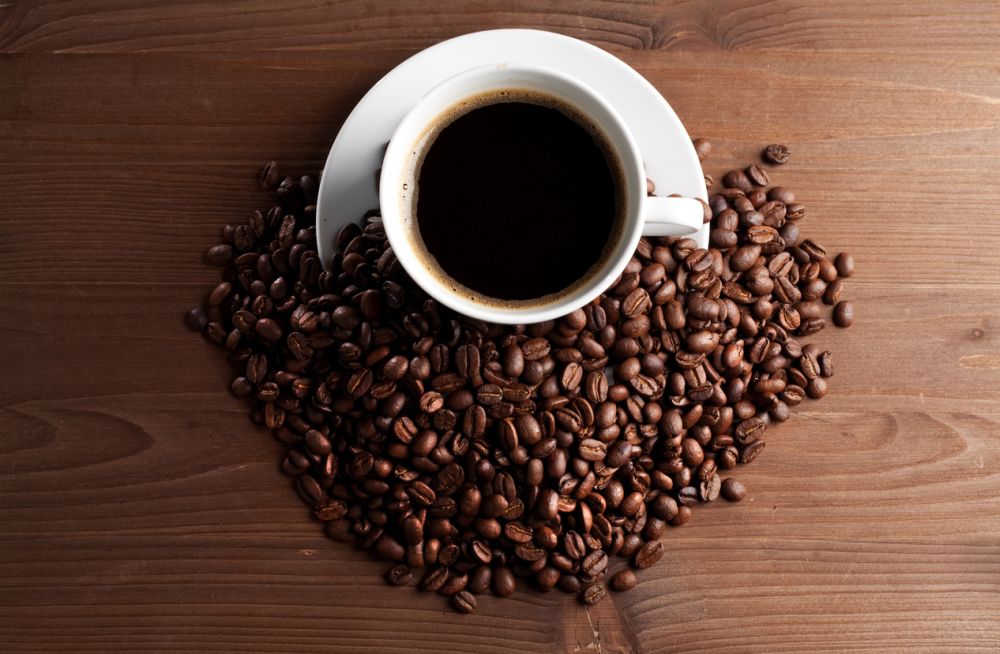
If you’re the type of person who cares about what they put inside their bodies, you’re probably looking for organic decaf coffee.
Decaf is lower in acidity than regular coffee, which is good news for those with sensitive stomachs. It’s also a great choice for people trying to cut back on their caffeine intake – it’s why many people turn to Starbucks organic coffee.
In this article, we are breaking down organic decaf coffee and showing you the best brands.
Table of Contents
- Best organic decaf coffee – Summary
- Organic decaf coffee: Everything you need to know
- Organic decaf coffee – Buying guide
- Top-rated organic decaf coffee – Reviews
- FAQ
- Closing thoughts
Best Organic Decaf Coffee (Summary)
- Medium roast
- Whole beans, ground, and pods
- 100% Arabica coffee beans
- Swiss Water Process
- Medium roast
- Whole beans, three types of grind
- 100% Arabica coffee beans
- Swiss Water Process
- Dark roast
- Whole beans
- 100% Arabica coffee beans
- Swiss Water Process
- Medium roast
- Whole beans, ground
- 100% Arabica coffee beans
- Swiss Water Process
- Dark roast
- Whole beans, ground
- 100% Arabica coffee beans
- Swiss Water Process
Organic Decaf Coffee: Everything You Need to Know
Most people are used to going to the supermarket and picking up the first tin of coffee they see.
For them, the terms organic and decaf may sound like something out of a health food store, but the truth is that it’s more than just a marketing ploy.
What Does Organic Coffee Mean?
In short, organic coffee is coffee grown without the use of pesticides, herbicides, or other chemicals. It’s also fair trade, meaning the farmers who grow it are paid a fair price. A good example is organic Kona coffee.
However, the only way to make sure that a coffee is truly organic is by looking at the label to see if it has the USDA Certified Organic seal.
It’s particularly important if you’re thinking of buying coffee that claims to be organic without having the seal, such as Bulletproof coffee.
Why Choose Organic Coffee?
- Tastier – it has a richer flavor than regular coffee. It’s because the beans are fully ripe before harvest, and they are roasted in small batches to preserve the flavor.
- Healthier – it has a higher nutrient value than regular coffee since it’s made without using chemicals that would otherwise strip away the nutrients.
- Better for the environment – the Certified Organic label indicates that the coffee was harvested in an eco-friendly manner. So you don’t have to worry that your morning cup of joe cost some poor animal its natural habitat.
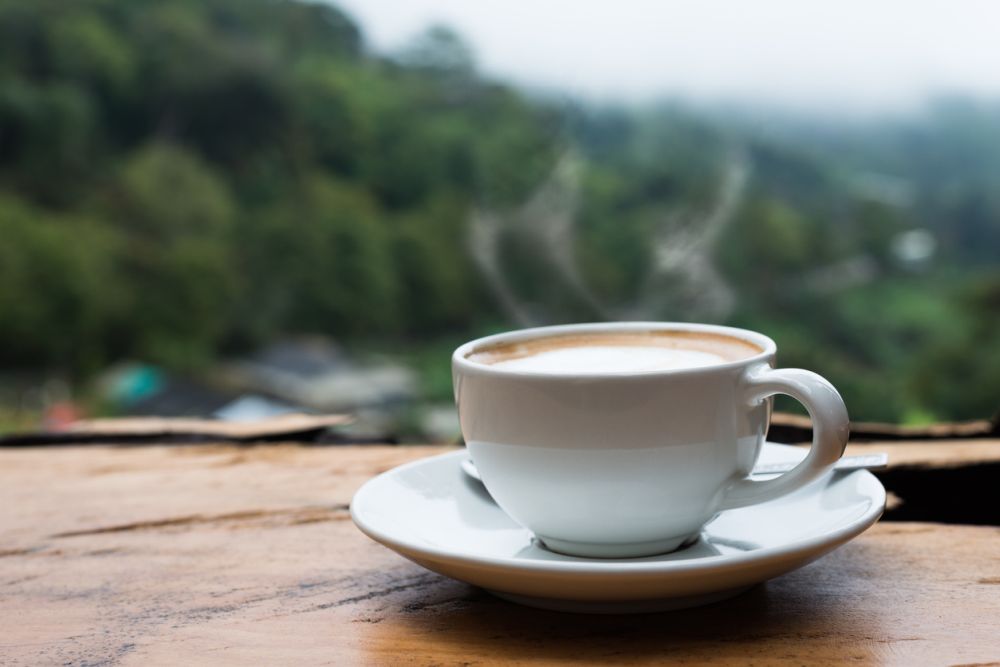
What Does Decaf Mean?
Decaf coffee is coffee with most caffeine removed. The decaffeination process may vary, but the result is always the same: coffee with a fraction of the caffeine content.
How is Decaf Coffee Made?
Some decaffeination methods use harsh chemicals, which can leave a bad taste in the coffee. So it’s always a good idea to learn about the decaf mode used by a particular coffee brand.
Here are the three most common methods of decaffeination:
- Swiss Water Process (SWP) – it’s a chemical-free process that uses water to remove caffeine.
- CO2 process – it uses carbon dioxide to eliminate caffeine, which is also a non-solvent method.
- Ethanol Extraction – it uses ethanol (alcohol) to get rid of caffeine, which is a chemically safe procedure.
The best organic decaf coffee will use one of these methods, so look for them on the label.
Why Choose Decaf Coffee?
- Helps with caffeine addiction – coffee is a source of too much caffeine for many people. If you feel jittery or anxious after drinking coffee, switching to decaf may be good.
- Sleeping disorders – caffeine is a stimulant, making it difficult to fall asleep if you drink it too close to bedtime. If you like to enjoy a cup of coffee before bed, decaf is the best option.
- Health concerns – caffeine has been linked with a number of health concerns, such as heart disease and high blood pressure. If you’re worried about the effects of caffeine on your health, consider drinking decaf instead.
- Stomach issues – the amount of caffeine from coffee beans is directly linked to how acidic coffee is. If you have stomach issues like acid reflux or GERD, drinking decaf coffee can help to relieve those symptoms.
Organic Decaf Coffee (Buying Guide)
Here are a few things to look for when buying organic decaf coffee:
Certified Organic
There’s a difference between Certified Organic and the word organic randomly added to the packaging. So the next time you’re shopping for coffee, be sure to look for the USDA Certified Organic seal.
Arabica or Robusta?
Coffee can be made from two different types of beans: Arabica and Robusta. As far as caffeine is concerned, arabica beans are considered the best kind, so you’ll want to look for a decaf coffee made from Arabica beans.
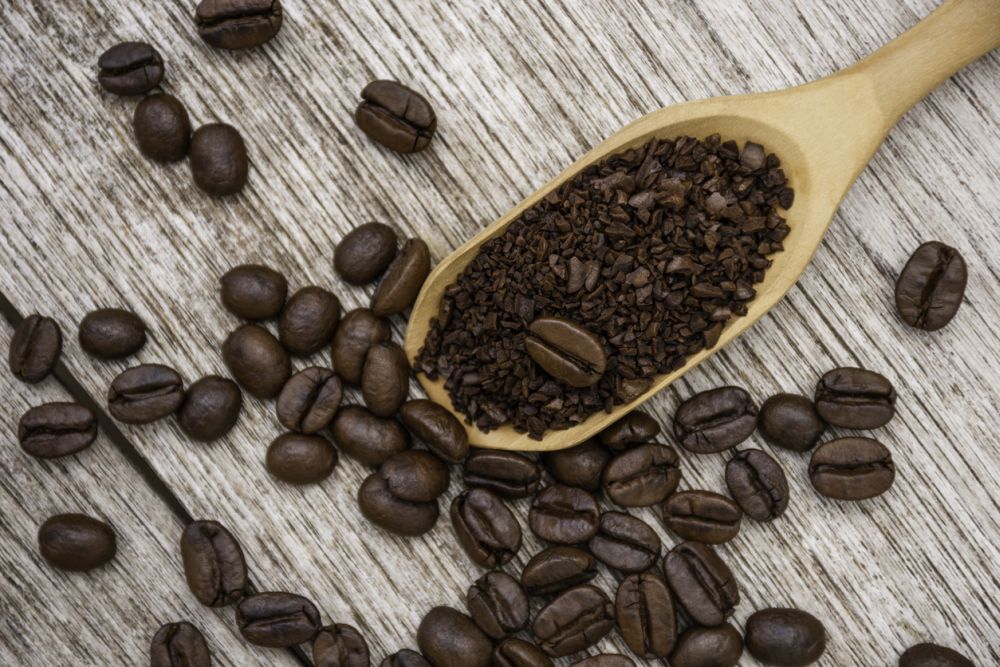
Roast
Technically speaking, the roast level of your coffee beans doesn’t affect caffeine. Nevertheless, people tend to believe that the caffeine level is higher since dark roast beans have a stronger flavor.
On the other hand, the way in which the coffee beans were roasted dictates the most suitable brewing method. And some brewing methods are better than others for making decaf, such as cold brew.
Price
The typical mindset is that the price will be higher whenever you see the word organic slapped on the package. Although it’s true in most cases, it doesn’t mean you have to break the family budget just so your cup of coffee will be 10% healthier.
Plenty of fantastic organic decaf coffee brands won’t cost you an arm and a leg, so do some research and find the best one for you.
Top-Rated Organic Decaf Coffee (Reviews)
There are plenty of organic decaf coffee brands on the market, but some are better than others, as with any other product.
Because of this, we wanted to make it easier for you by rounding up some of the best organic decaf coffee brands on the market today:
1. LifeBoost Medium Roast Decaf
LifeBoost has a wide variety of organic, fair-trade coffee, including a medium roast decaf that’s delicious and well-rounded.
All coffee varieties from LifeBoost are organic, non-GMO, and fair-trade certified. Plus, the beans are roasted in small batches to preserve their flavor.
In addition, LifeBoost only uses the Swiss Water Process to decaffeinate their coffee, so you can be sure it doesn’t use any harsh chemicals.
Speaking of chemicals, LifeBoost Medium Roast Decaf is free of mycotoxins, which are toxins found in coffee beans contaminated with mold.
Furthermore, if you suffer from any kind of stomach issues, you’ll be happy to know this coffee is also low in acidity. So, if you’re looking for an organic decaf coffee that’s both delicious and environmentally friendly, LifeBoost is a terrific option.
Find out more in our LifeBoost coffee in-depth review.
Pros
- Roasted in small batches to preserve flavor
- Uses only Swiss Water Process to decaffeinate
- Free of mycotoxins and chemicals
- Low in acidity
Cons
- More expensive than some other brands
Bottom Line
If health is your main concern, look no further than the medium roast decaf from LifeBoost.
2. Volcanica Papua New Guinea Decaf Coffee
Volcanica offers various types of coffee from all over the world, including a Papua New Guinea decaf that’s rich and flavorful.
All coffee beans from Volcanica are roasted in small batches to keep their natural flavor. In addition, they’re organic, fair-trade, Kosher Certified, and Rainforest Alliance Certified.
Volcanica only uses the Swiss Water Process to decaffeinate their coffee beans, thus eliminating 99.9% of the caffeine; you can be sure that you won’t be getting any jitters. Furthermore, the beans are free of mycotoxins and chemicals.
Volcanica Papua New Guinea Decaf Coffee is available in 16 oz. packs. But if you want to buy more and take advantage of volume discounts, you can purchase 3 lbs. and 5 lbs. bags.
If you’re looking for an organic decaf coffee that’s delicious and environmentally friendly, Papua New Guinea is a great option.
On the other hand, if you prefer a more complex aroma, try Volcanica Peru Decaf Coffee since it’s grown at a higher elevation.
Pros
- Decaffeinated using the Swiss Water Process
- Doesn’t contain mycotoxins and chemicals
- Roasted in small amounts to retain flavor
- Bulk purchase options are available
Cons
- Only medium roast blends are available
Bottom Line
If you suffer from severe caffeine sensitivity, this decaf blend from Volcanica is just what the doctor ordered.
3. Kicking Horse Organic Decaf Coffee
Don’t let the name of this particular coffee brand fool you since their decaf coffee varieties are as decaf as they come.
More so, it’s a dark roast that contains the three Ds of a good decaf coffee: deep, dark, and delicious.
Decaf is well-known because it has a significantly mellower flavor than regular coffee, and this is something you can feel with every sip of Kicking Horse.
Coffee made with these particular beans tastes like dark chocolate with a roasted nut finish, which lasts on your tongue long after finishing your cup.
Furthermore, Kicking Horse Organic Decaf Coffee is 100% certified organic, fair-trade, kosher, and shade-grown – it doesn’t get any healthier than that.
We recommend brewing these coffee beans using a French press, drip machine, pour-over, espresso, or cold-brew for best results. Since this blend is only sold as whole beans, you need a coffee grinder.
Pros
- Certified organic, fair-trade, kosher, and shade-grown
- Tastes like dark chocolate and roasted nuts
- Fantastic for various brewing methods
- The taste lingers on your tongue
Cons
- You need to grind the beans yourself
Bottom Line
Decaf can be as flavorful as regular coffee. But don’t take our word for it – try this blend from Kicking Horse.
4. Tyler’s No Acid Organic Decaf Ground Coffee
Tyler’s Coffee is ideal for people interested in organic decaf coffee that’s also low in acidity, which is its biggest selling point.
As such, it’s perfect for dealing with sensitive stomachs or if you prefer a milder cup of coffee. Besides, you probably know that acidic foods and beverages are bad for your teeth.
However, Tyler’s Coffee uses a proprietary secret roasting technique that strips the harmful tannins and lipid acids, so you don’t have to worry about going to the dentist.
We’re also happy to report that Tyler’s No Acid Organic Decaf Ground Coffee uses the Swiss Water Process, which is the healthiest decaffeination method available.
You can get this coffee in whole bean and ground form. However, the packaging is relatively small (just 12 oz.), so you’ll probably need to order more than just one bag.
Pros
- Proprietary roasting technique that strips harmful tannins and lipid acids
- Great for those that suffer from heartburn or indigestion
- Available in whole bean and ground form
- Uses the Swiss Water Process
Cons
- Relatively small packaging
Bottom Line
Acidity is a huge issue for many coffee drinkers, so try this coffee from Tyler’s if you want a low-acid decaf with an amazing taste.
5. Organic Coffee Co. Decaf Hurricane Espresso Coffee
Decaf Hurricane Espresso from The Organic Coffee Co. is the best organic decaf coffee for espresso lovers. It was designed specifically for brewing espresso, although you can also use it for drip machines, French press, Aeropress, pour-over, and Moka pots.
This coffee is also USDA certified organic and fair-trade certified, which proves that it was grown and harvested ethically.
As for decaffeination, Organic Coffee Co. Decaf Hurricane Espresso Coffee uses the Swiss Water Process to remove the caffeine while preserving the flavor and aroma of the coffee beans, which is a rare sight for dark roasts.
Organic Coffee Co. has several other organic decaf blends besides this one, including:
So, if you’re not so much into espresso, you can go ahead and give these blends a try – you won’t regret it.
Pros
- Decaffeinated using the Swiss Water Process
- Available in whole bean and ground form
- Great for brewing espresso
- Artisan roasted
Cons
- High price tag
Bottom Line
Those who wish to enjoy the taste of espresso without the caffeine should try this blend from Organic Coffee Co.
Organic Decaf Coffee (FAQ)
Find out more details about decaf organic coffee:
Is organic decaf coffee healthy?
In general, organic decaf is healthier than regular coffee since it doesn’t contain any harmful chemicals. However, the decaffeination mode can often strip away the bean’s natural oils and flavorings. So it’s best to check the ingredients list on the package.
What is the healthiest decaffeinated coffee?
A coffee decaffeinated with the Swiss Water Process is the healthiest decaf coffee. A good example is LifeBoost Medium Roast Decaf.
Can you get organic decaf coffee?
Yes, organic decaf coffee is widely accessible. Look for online retailers specializing in selling organic and/or fair-trade coffees.
Which brands of coffee are naturally decaffeinated?
All coffee beans have caffeine, but some have lower caffeine contents. For instance, Arabica has about 50% less caffeine than Robusta. Generally, you can trust any coffee brand that uses the Swiss Water Process to treat their decaf Arabica beans.
Are there chemicals in decaffeinated coffee?
Yes, some traces of chemicals can be found in decaf coffee due to three reasons:
- They were decaffeinated using a chemical solvent like methylene chloride
- They were not organically grown, so they contained traces of pesticides
- The coffee was roasted with a chemical additive
Closing Thoughts
We’ve reached the end of our guide, and we hope that you now have a much better understanding of what organic decaf coffee is and why it’s becoming such a popular choice for coffee drinkers worldwide.
What are your favorite organic decaf coffee brands? Let us know in the comments below.
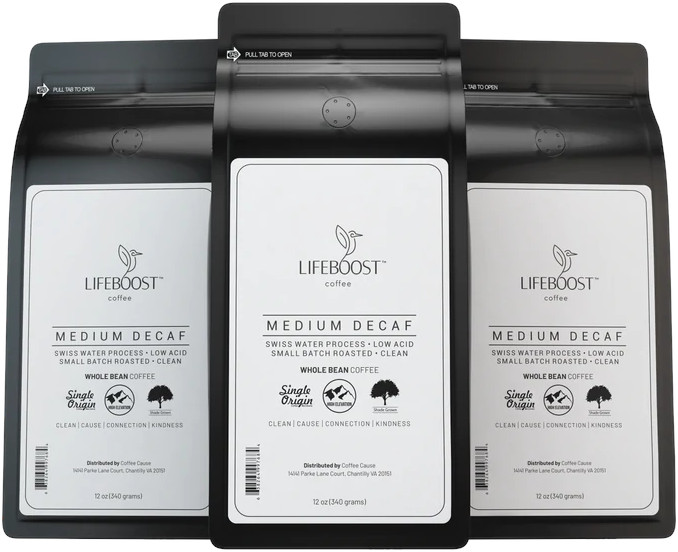
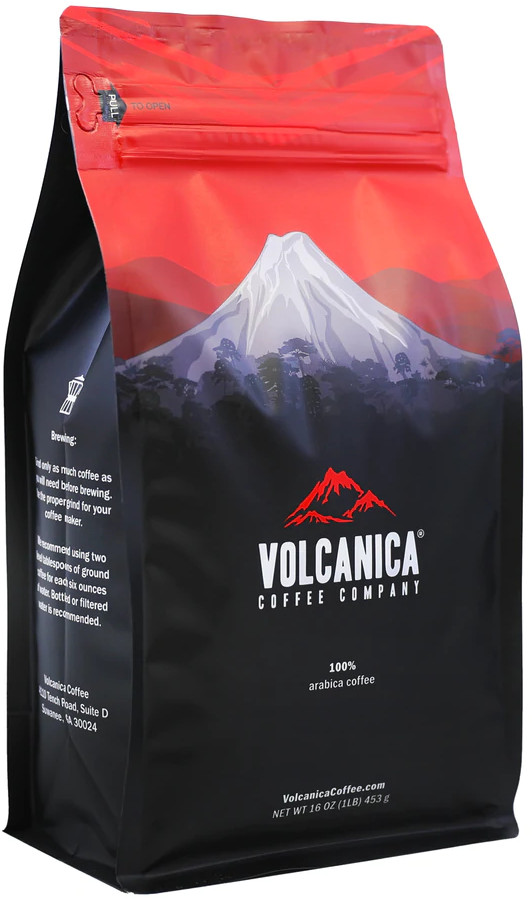
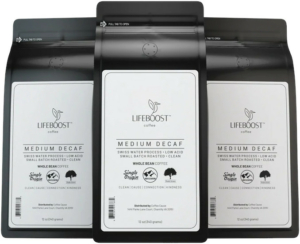
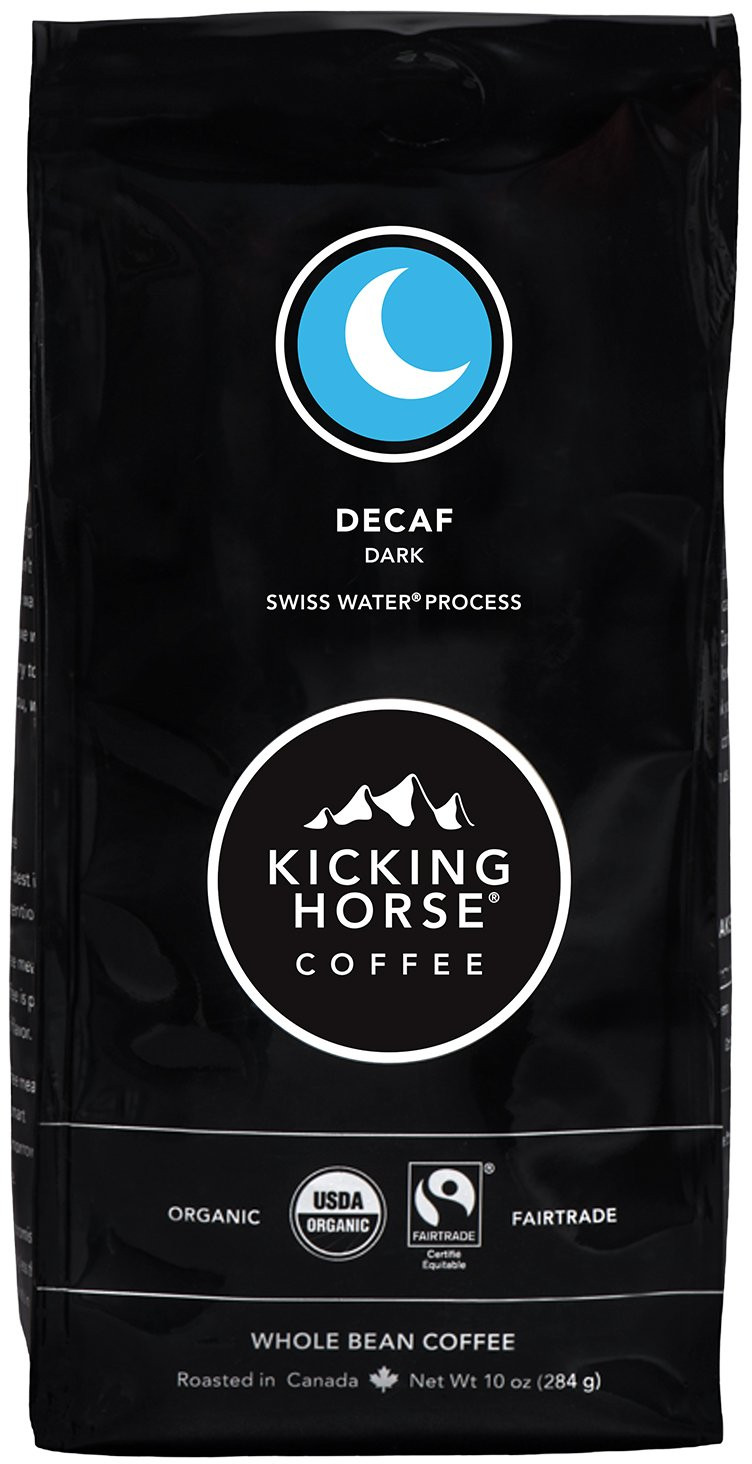
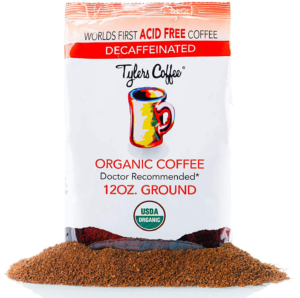
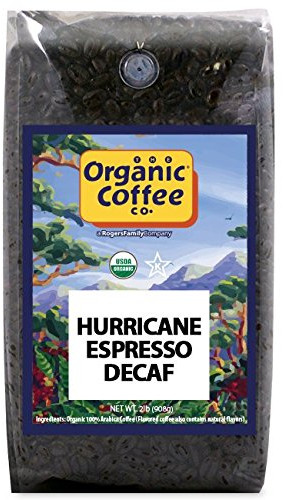
Leave a Reply